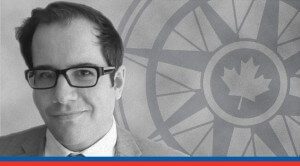 Why is Canada withdrawing its CF-18s but content to assisting allies with refuelling in the fight against ISIL? Can our military negotiate the pitfalls of training and supplying local forces?
Why is Canada withdrawing its CF-18s but content to assisting allies with refuelling in the fight against ISIL? Can our military negotiate the pitfalls of training and supplying local forces?
These are just some of the questions that remain after Ottawa’s newly-announced revamp in its mission against ISIL, writes Alex Wilner.
By Alex Wilner, Feb. 10, 2016
On Monday Canada tabled its new ISIL mission. There’s much to applaud. But questions remain.
Canada’s pledge of over a billion dollars in humanitarian assistance is the plan’s specialty. This is a generous and necessary offer. The money will go towards sheltering and assisting refugees fleeing the combined barbarity of ISIL and the Syrian regime.
Importantly, this initiative is rooted to a feasible, long-term strategy. The goal is to bolster frontline states, like Jordan and Lebanon, against the crush of refugees, and help alleviate Europe’s migrant crisis. Canada’s contribution makes sense.
Other elements of Canada’s plan are less obvious.
Take the bombing mission. Providing our allies with refueling and surveillance aircraft while withdrawing our fighter jets suggests Canada is eager to help the military campaign but unwilling to pull the trigger itself. Why is that?
We’re leaving center stage to assist from the wings.
When initiated in 2014 Canada’s contribution to the coalition’s strategy was based on containing ISIL’s momentum by destroying its capabilities. Coalition aircraft later aided local forces in recapturing towns from ISIL. Both tasks were necessary. But they’re also ongoing. Preparations to retake Mosul, Iraq’s second largest city, hinge on coalition air support of Iraqi ground forces.
Canada’s position seems to be that while the larger strategy still makes sense, we’ve nonetheless found compelling reasons not to directly implement it. We’re leaving center stage to assist from the wings.
The task of squaring this circle landed on Chief of Defence Staff Jonathan Vance. “There is sufficient air power available to the coalition, from those who are contributing air power,” he explained, “for the coalition to achieve the objectives it needs to achieve with air strikes.” Canada is “going to take this point in time in the campaign [to] intensify the effort on ground operations against ISIL.”
Syntax aside, the argument is compelling. In the air, the coalition is maxed out. On the ground, more of Canada is needed.
Hence Canada’s other shift: a trebling of its training mission. Canada currently has 69 soldiers training Iraqis, mainly in the Kurdish north. That figure will jump to about 200.
The “train, advise, and assist” mission rests on a strategic imperative: local forces must defeat ISIL. Western nations aren’t prepared to deploy ground troops. And an indigenous victory is the only way to truly vanquish ISIL. So beefing up the locals is necessary. The liberation of Ramadi, west of Baghdad, and Sinjar, in northwest Iraq, late last year by Iraqi and Kurdish forces – both backed by coalition air power – is the preferred model.
It’s here that Canada’s approach may run into some difficulty.
Canada’s ISIL mission is heading in new and important directions. But the government has yet to answer whether the plan is both operationally feasible and strategically sound.
While a potent force, the Kurds may hesitate to liberate Mosul. Having controlled the city since 2014, ISIL is entrenched. Only fierce urban combat will dislodge it. The city also rests beyond the territory Iraqi Kurds envisage for their future state. It isn’t clear what diplomatic leavers Canada might use to convince its Kurdish allies to set aside their national aspirations for the good of a unified Iraq.
Nor does Canada’s training mission seem to address the issue of vetting and equipping the Sunni Iraqi and Syrian partners needed to subdue ISIL. The United States folded its $500-million campaign to train Syrian rebels last October. Its subsequent plan to equip anti-ISIL rebels with small arms was slammed after weapons ended up in jihadist hands. Canada, now promising to arm Iraqis, will want to avoid this fate.
Canada’s ISIL mission is heading in new and important directions. But the government has yet to answer whether the plan is both operationally feasible and strategically sound.
– Wilner is a professor at Carleton University and a fellow at the Macdonald-Laurier Institute. His latest book is Deterring Rational Fanatics.




